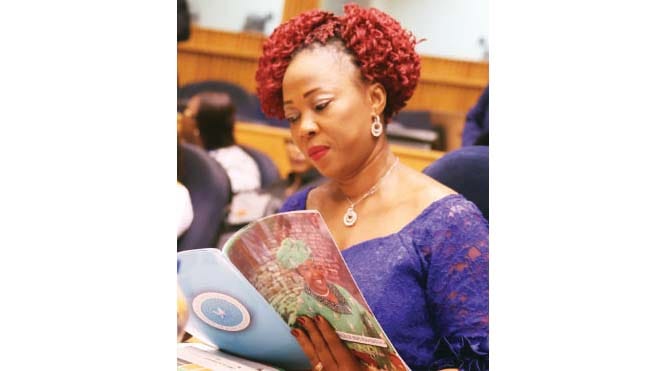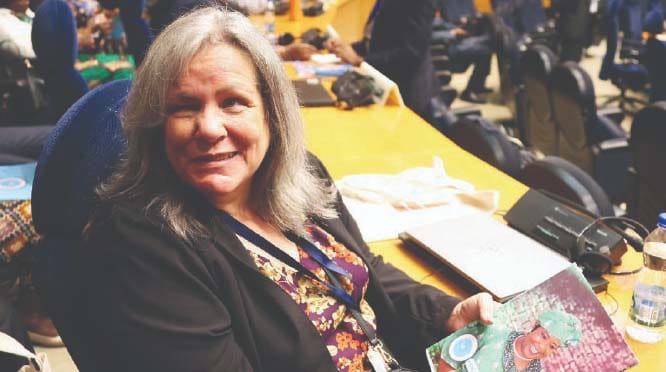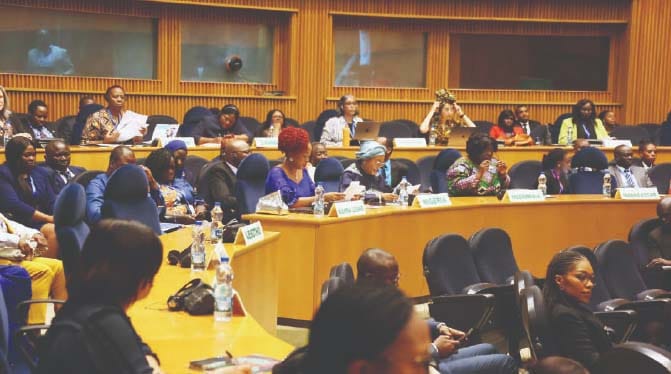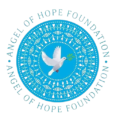Tendai Rupapa in ADDIS ABABA, Ethiopia
The OAFLAD summit, which ended yesterday, was being held under the theme “Educate her and transform Africa: Enhancing access to health and education for the 21st Century’s African women and girls”.
The summit started by observing a minute of silence in remembrance of Namibian President Hage Geingob who passed on recently.
Former Namibian First Lady Monica Geingos was the OAFLAD president.
Guests scrambled for copies of magazines that chronicled the various works being spearheaded by Amai Mnangagwa through her trailblazing Angel of Hope Foundation which were being distributed at the summit.
Her works captured the imagination of other First Ladies, various people and organisations that sought to hear more about her works and prospects for partnerships.
The dignitaries highlighted that they had been highly inspired by Dr Mnangagwa’s works and expressed willingness to emulate them in their respective countries.
They applauded the mother of the nation for her selflessness, commitment and hard work.
The First Lady has countless programmes across many sectors including education, health, agriculture, environment and economic empowerment among many others.
The theme, Dr Mnangagwa said, was truly befitting of OAFLAD’s continental #we are equal campaign rallying behind the call to ‘close the gender gap in Africa’.
“I am of the firm belief that we owe it to our girls and to future generations to close the gender gap in Africa. Enhancing access to health and education is truly the way to go if we are to achieve gender equality and gender parity,” she said.
Recognising the importance of uplifting the lives of girls and young women, Dr Mnangagwa launched the #weareequal campaign at Maria Theresa Clinic in Chiweshe which is her home village.
She constructed the clinic using her personal savings to support her community as they were having to walk long distances to the nearest clinic.
“Furthermore, at the same time as I was launching the #weareequal campaign, I also launched the Global Alliance to end AIDS among children by 2030. I had the pleasure of addressing the community, pregnant and lactating women on the benefits of aspiring towards an HIV and AIDS free generation of children. I took the opportunity to interact with both women and men, and challenged the community to embrace the drive to make women and men truly equal,” she said.
“For the girl child to fulfil her full potential in life, a multitude of actions from multiple fronts are required, chief amongst which is access to education and health. I have been actively involved in the Merck Foundation- Educating Linda program in my country and have to date supported many young girls to acquire an education. I wish to enrol even more young girls in this programme.”
Beyond this, Dr Mnangagwa said she also provides scholarships to both boys and girls coming from challenging environments in the urban areas, as well as those in the very remotest parts of the country.
“Only through a sound education can our girls from underserved communities lift themselves out of poverty. I strongly believe that by educating girls and young women and empowering them economically, we transform their lives and also increase their chances of living long and healthy lives of having healthy children and nurturing healthy families.
“The theme of this year’s OAFLAD 28th General Assembly, ‘Educate her and transform Africa: Enhancing access to health and education for the 21st Century’s African women and girls’, also emanates from Africa’s continental strategy that advocates for strong ties between the education and health sectors,” she said.
Women and girls, Dr Mnangagwa said, need to be supported to access health and education towards achieving the Sustainable Development Goals on Health and education.
“I wish to assure you all that I will remain resolute in believing in the value of educating the girl child and increasing access to health for our girls and women. May I hasten to say, this does not in any way negate the importance of continuing to address these same issues for men and boys.
“To truly benefit the country, I have expanded my support for education to cover girls from different communities in all the country’s 10 provinces. I do this work through the Angel of Hope Foundation, a charitable Foundation that I founded in 2018.”
“Through the Angel of Hope Foundation, I have also been addressing other social ills such as child marriages, gender based violence and the decay in our social and moral values, including drug and substance abuse. In addition, I also tackle other health issues such as cervical cancer, and NCDs amongst many others,” she said.
Women and girls benefit immensely from economic empowerment programmes that improve their social standing in communities.
“I was appointed the patron of the Agriculture-for-She initiative aimed at empowering women through farming. Under the Agric-for-She initiative, I support women with various projects to lift them out of poverty, as well as support them to grow traditional grains that are healthy and drought resistant. This has helped women to be able to look after themselves and their families, including the ability to afford school fees for their children to be able to attend school.
“Economic empowerment of women will ultimately benefit the economy of our country as women work shoulder to shoulder alongside their male counterparts. As Health Ambassador under the Ministry of Health and Child Care in my country, I know that an educated woman has better health outcomes as she is empowered with information and knowledge to seek care early and to also do the same for her children,” she said.
Education and health, the mother of the nation emphasised, are key to the health of women and girls.
“Education and health are key to our achieving the goals of the #weareequal campaign and we must do our part to support these. I would like to inform you that amongst all the programmes that I am implementing in Zimbabwe going forward I would like to single out the cancer screening programme as flagship programme for my initiatives. We have already started over the past years to screen for cervical cancer and breast cancer amongst women and prostate cancer in men using the outreach programme where we have a mobile clinic which goes throughout the country screening women and girls,” she said.
Going forward, the First Lady said she had received another state-of-the-art mobile hospital which would expand services.
Host First Lady, the First Lady of Ethiopia Madam Zinash Tayachew, said it was no secret that education plays an important role in ensuring the overall development of a country and producing competitive human capital.
Education, she said, enables women to compete and reap the benefits while raising awareness of the need to defend the rights and enjoy the benefits and the freedom of life.
“My office is committed to various charity organisations to make education accessible to communities at the grassroots level, especially women and vulnerable groups of society. In addition we are mobilising resources and we are on various stages to begin the construction of a school for the visually-impaired in Addis Ababa,” she said.
The Ethiopian First Lady attributed the decline in school enrolment in Africa to the fact that the standard of living to the majority in Africa is low and that many children do not have enough to eat.
“This has a significant impact on academic performance. They therefore drop out of school. The impact on female students is even worse. They are exposed to harmful practices that force them to drop out of school and go into early marriage due to pressure from their families. In order to increase access to education in Africa, special attention has to be given in the area of coordinating efforts and making school feeding an integral part of the education system. We can achieve quality education for all through cooperation,” she said.
Back home, to curb school drop-out, Amai Mnangagwa has since introduced school feeding programmes in schools where she provides food through her Angel of Hope Foundation.
OAFLAD vice president, the Democratic Republic of Congo First Lady Mrs Denise Nyakeru Tshisekedi, highlighted the successes of OAFLAD since inception.
“I am here surrounded by champions and committed persons. I am very grateful to you all for the work you are doing in your respective countries,” she said. “It’s 22 years that OAFLAD has been active and uses the means that it has at its disposal to achieve the strategic objectives of the organisation among them, the reduction of maternal and infant mortality, the reproductive health of women, the parity and education of girls and fight against all forms of violence against women.
“Since its inception, OAFLAD played a crucial role and served as a platform and a powerful one for women across the continent. The actions and activities of OAFLAD have had a positive impact on the development on the ground and restore the dignity of women and girls. Today we would like to highlight the important work that we are doing and indeed look into the collective impact and more importantly we would like to interrogate the relationship between education and health and to see how this is configured to contribute to development.
“We launched the #weareequal campaign and this appeals for support to end inequalities that still exist in Africa and gender inequality. We are equal and it strengthens that we are all equal right from birth. The same dignity that is inherent, the right as well as the contribution to our societies.

“These words have a certain resonance with our continent particularly where equality is a reality that has been lived as well and not a far drawn dream. We believe that girls and women are the agents of change and therefore this campaign has four different areas health, violence against women, economic empowerment and education and has identified specific areas that require the agent attention of OAFLAD.”
Brazilian First Lady Rosangela da Silva underscored the importance of educating girls and women and commended the First Ladies for their efforts.
“When we talk about educating women and young girls, this is something that is very important to us. It is an opportunity to transform the lives of our children and women and as women we are very much aware of the various challenges that we face throughout our lives.
“We face a lot of barriers and we should not compromise our potential. As First Ladies we have the opportunity to promote gender equality and defend the rights of the young people. I am more convinced that women have a lot to give to countries and to the world in general. We are very much positive and we need to be part of the decision making process so that we improve our policies and improve the lives of our population. We need to promote peace in our respective communities,” Mrs Da Silva said.
Women, the Brazilian First Lady recommended, should have the opportunity to participate in crisis and conflict resolution.
“Your Excellencies, when I heard about African women participation in various projects with key partners I believe it is very much important to achieve that objective that you have set mainly to education and gender equality. We need to focus more on the most vulnerable groups of our population. We need to share with you some of our successes,” she said.
Nigerian First Lady Senator Oluremi Tinubu also described the theme of the summit as important saying it addresses the essence of OAFLAD’s mission for a thriving and progressive continent.
“Across the world, education and health form an inseparable foundation for societal progress by shipping knowledge, attitudes and behaviours. Education impacts individuals and communities which in turn has direct influence in health outcomes. In Nigeria women represent approximately 41 percent of our rapidly increasing population of over 200 million people. According to the National Population Commission 23 percent of girls between the ages of 15 and 19 years have started child bearing,” she said.
“About 400 000 unplanned births occur annually in Nigeria and half of these births are attributed to teenage girls. As education makes a lifelong teacher I find it disturbing that embedded social norms like early marriage and child bearing restrict girls’ life choices.

“Across Nigeria other obstacles like sexual violence, family health crisis and poverty also force girls out of the classrooms. Pregnant students are often victims of ridicule which forces them to drop out of school with very slim chances of ever returning. They end up in the early labour market and can barely put food on the table. Hopes of a better future like theirs should not be sacrificed or dashed on the altar of unplanned pregnancy.”
Angolan First Lady Ana Dias Lourenço said it was critical to educate women and transform Africa, enhancing access to health and educating the young people, especially the women.
“Africa is growing but we all know that one element that can bring about change within our young population is by harnessing the demographic dividend. We have to give more power to the youth and create a stable environment and promote technological innovation,” she said.
Commissioner for Health, Humanitarian Affairs and Social Development at the Africa Union Commissioner Ambassador Minata Samate Cessouma paid tribute to OAFLAD and saluted First Ladies for their various initiatives and interventions which had positive outcomes for Africa.
“I wish to begin my statement by commending the invaluable role played by OAFLAD and its member First Ladies across our continent in promoting continent wide leadership, advocacy for policy and social change and enhancing the resource mobilisation efforts at global, continental and national levels. These efforts focus on critical areas such as HIV and aids, non-communicable diseases, reproductive maternal new-born, child health, gender equality, women empowerment and youth empowerment, social security and protection including persons with disabilities and institutional capacity strengthening,” she said.
Ambassador Cessouma highlighted the importance of the African Union’s Agenda 2063 as a blueprint for development.
The AU Commission, she said, actively champions the implementation of key initiatives aligned with OAFLAD’S current four pillars-health, education, economic empowerment and gender-based violence.
UNAIDS executive director Winnie Byanyima saluted the First Ladies of Africa for their work and gave chilling statistics of how girls and young women were exposed to HIV due to lack of empowerment.

“I salute you First Ladies of Africa for your outstanding, longstanding leadership in this fight against HIV aids which l lead at the UN and now for setting this theme which is linking education and health and focusing on girls and women in Africa. 129 million girls are out of school worldwide. The biggest number is here in Africa,” she said.
“This is not a tragedy we must accept. This is an injustice we can take on head-on. Girls’ health, girls’ security, girls’ future depends on them getting an education. Here is a figure I want you to stay with. Here on our continent, last year, 3 100 adolescent girls and young women were infected with HIV and Aids each single week.
“We are here on a Sunday and next Sunday 3 100 girls are being infected. Adolescent girls and young women between the ages of 15 and 24 accounted for more than 77 percent of new infections. They were more than three times as likely to be infected with HIV than their male peers last year. It’s an injustice. Education empowers and protects. Education levels the ground, reduces the inequalities that drive this vulnerability.
“Education increases girls and women’s access to labour markets, their earning potential, their overall productivity and the socio-economic outcomes of countries.”
Ambassador at large, US global Aids Coordinator and Senior Bureau Official for Global Health Security and Diplomacy Bureau of Global Health Security and Diplomacy Dr John Nkengasong said the world faced a big challenge on how to bring HIV/Aids to an end.
“One of the main challenges we have is how do we bring an end to HIV/Aids among adolescent girls and young women and we have the statistics,” he said. “To respond to that, we in Pepfar in 2024 in partnership with the private sector launched a programme called DREAMS.
“Dreams introduced three things-to empower adolescent girls and women to reduce HIV/Aids through risk reduction activities, youth-friendly activities including reproductive healthcare and social services. Mobilise community for change with community-based HIV reduction ad violence prevention activities and strengthening families with social protection including education which is very important to the dialogue we are having this morning.
“The programme has reached about 3 million adolescent girls and young women with a remarkable impact in reducing the rates of new infections in that group.”
OAFLAD executive secretary Dr Nardos Berhanu was mesmerised by Dr Mnangagwa’s initiatives and hard work.
“We are grateful to have Dr Auxillia Mnangagwa as an active member of OAFLAD and I would like to highlight her contributions throughout the year in terms of organising a side event at Victoria Falls during the ICASA conference and also the launch of the #Weareequal campaign in her country,” she said.

“She was one of the first few countries who launched it in 2023 and so we are grateful for her participation and active contribution towards the development of our continent.”
After going through the First Lady’s magazine, Mrs Kathis Shea, the vice president and General Manager of Azenta Life Sciences was awestruck by the volume and quality of work being done by Dr Mnangagwa in Zimbabwe through her Angel of Hope Foundation.
“I am here today to learn more about OAFLAD’s initiatives in particular on the health pillar and how we may be able to accelerate those activities through enabling breakthroughs faster,” she said.
“As I look at the Angel of Hope Foundation’s magazine showing the First Lady’s works, it really has inspired me in terms of the work that is being done on all of the pillars. The health sector in particular, is one I would like to learn more about.” – Herald

